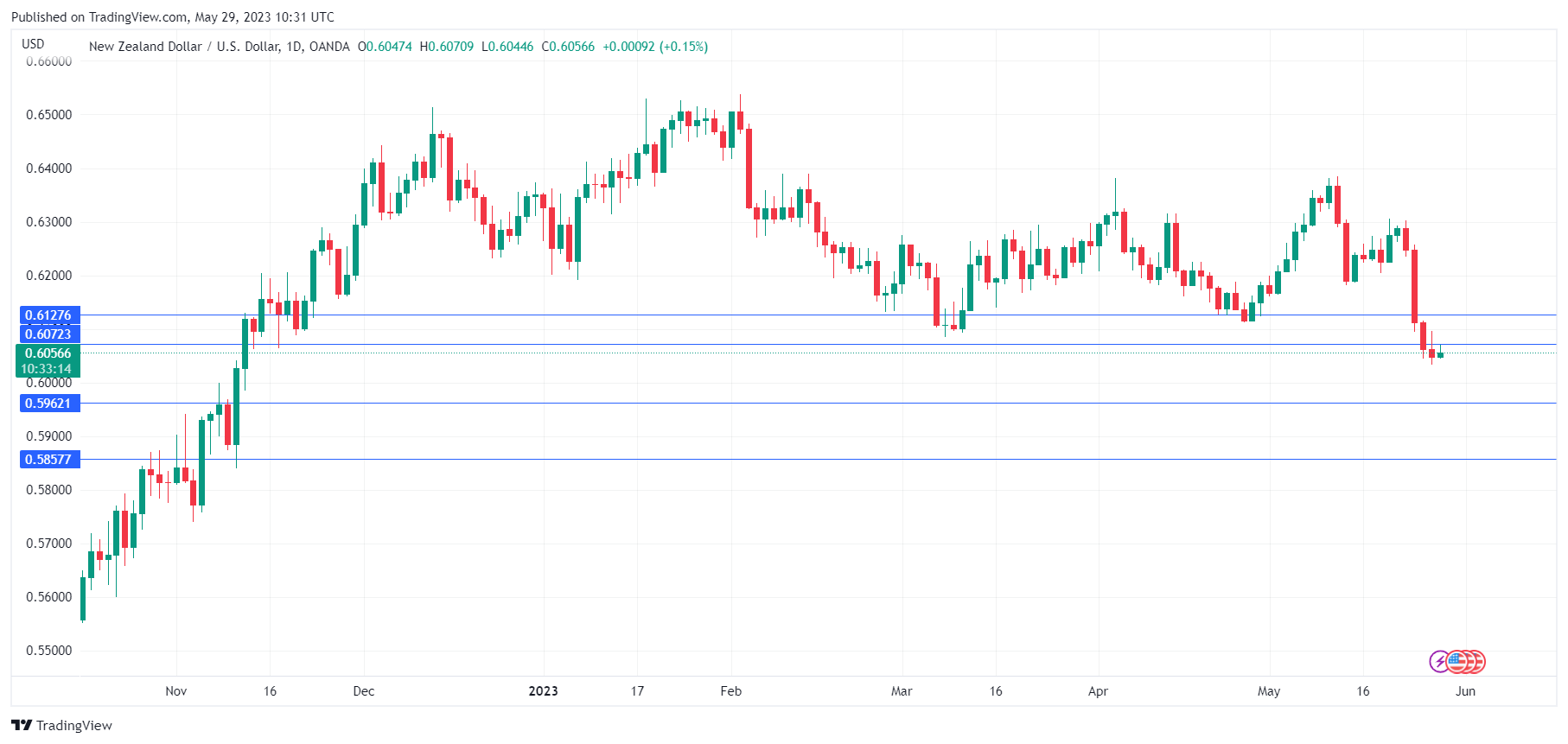- US markets closed for a bank holiday
- New Zealand dollar steadies after a 3.6% plunge last week
- US inflation is higher than expected
The NZD/USD has stabilized on Monday after a disastrous week. In the European session, NZD/USD is trading at 0.6057, up 0.17%.
US reaches debt ceiling deal
US lawmakers hammered out a debt ceiling deal over the weekend. The agreement means that the US will avoid defaulting on its debt, which would have had disastrous implications on the US economy and on global markets. The bitter negotiations between Republicans and Democrats caused plenty of angst in the financial markets and pushed US Treasury yields and the US dollar higher. The agreement now moves to Congress, where it is expected to be ratified this week.
With the debt ceiling crisis behind us, risk sentiment has improved, and the New Zealand dollar is in positive territory today. The kiwi was pummelled last week, plunging 3.6% and falling as low as 0.6033, its lowest level since November 7. The New Zealand dollar fell over 2% on Wednesday after the Reserve Bank of New Zealand surprised the markets by signalling that last week’s rate hike was likely the last in the current tightening cycle.
New Zealand’s retail sales also contributed to last week’s woes, with retail sales contracting for a second straight quarter, as high-interest rates have cooled the economy. The RBNZ is projecting that the economy will contract in the second and third quarters, which should bring down inflation, which is running at 6.7%, well above the target of 2%.
In the US, inflation continues to surprise on the upside. On Friday, the headline PCE price index climbed 0.4% on the month, versus an estimate of 0.0%, while the core reading jumped 0.8%, double the estimate. Only a month ago, the markets had pegged the probability of a pause at 64%, but currently there is a 64% of a 25-bp rate hike, according to CME’s Fed Watch. Stubborn inflation has interfered with the Fed’s hope of a pause, and this week’s employment report will likely determine whether the Fed goes for a pause or hikes yet again.

NZD/USD Technical
- 0.6072 is a weak resistance line. This is followed by 0.6127
- 0.5962 and 0.5857 are providing support
